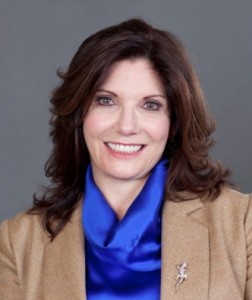By Kelan Hlavaty
The medical path came naturally to Andrea Dunaif, as both of her parents were physicians. But it was during medical school that she discovered a love and aptitude for research, specifically Endocrinology. Immersed in both the science and medical fields (and spending many hours in the lab, which was unusual for a medical student), she was inspired by the link between patient syndromes and scientific discoveries. This led her to faculty positions at a host of nationally known, reputable institutions, including Mount Sinai School of Medicine, Pennsylvania State University College of Medicine, and Harvard Medical School. Currently, Andrea is the Charles F. Kettering Professor of Endocrinology and Metabolism and Vice Chair for Research in the Department of Medicine at Feinberg at Northwestern, where she was previously the Chief of the Division of Endocrinology, Metabolism, and Molecular Medicine.
Andrea’s research has always been patient-oriented and translational in nature; her work explores the mechanisms linking metabolism and reproduction and the genetics of polycystic ovary syndrome (PCOS). “Science is continuously exciting,” she believes, and it’s rewarding to follow the overarching theme of a research question throughout one’s career, which constantly raises new questions, often enabled by cutting-edge technologies. Recently, her projects have led into the field of genetics and next generation sequencing to search for genetic mutations in PCOS. Andrea perceives science as a puzzle, requiring creative ways to answer questions, including exciting interdisciplinary collaborations. Perhaps most importantly for a physician-scientist, Andrea’s research has had a major impact on the care of patients with PCOS.
One of the most gratifying aspects of her career is “finding engaged, excited younger people who want to be involved in science” and helping her mentees establish their own career. Unfortunately, science has its frustrating aspects (as we all know), one of which is acquiring funding. Andrea tackles this by having a strategic plan and keeping her calendar organized around grant deadlines.
Acquiring senior leadership positions, especially in academic internal medicine, is certainly another challenge, the reasons for which are multifactorial. Andrea recommends that women seek out advice early in their career and listen to the counsel of those who are senior. Being open to this advice is instrumental in choosing mentors, picking a project, and writing grants. And importantly, “knowing when to drop a project is just as important as knowing when a project is worth pursuing.” Andrea’s words of advice are broadly applicable to most of us, regardless of where we are in our career.
 In addition to her medical and research roles, Andrea also oversees two NIH-supported training programs, has authored over 100 original scientific publications, edited four books, and is the Director of the National Institutes of Health-supported Northwestern University Specialized Center of Research on Sex Differences, among other involvements. She would welcome future leadership positions and would like to play a role in ensuring that the scholarly side of medicine is sustained with healthcare reform. In her free time, Andrea enjoys ballroom dancing and opera.
In addition to her medical and research roles, Andrea also oversees two NIH-supported training programs, has authored over 100 original scientific publications, edited four books, and is the Director of the National Institutes of Health-supported Northwestern University Specialized Center of Research on Sex Differences, among other involvements. She would welcome future leadership positions and would like to play a role in ensuring that the scholarly side of medicine is sustained with healthcare reform. In her free time, Andrea enjoys ballroom dancing and opera.
Andrea sums up her love for research as simply: “Bottom line, science is a wonderful life, creative, and interesting. The core of it is fantastic.”
